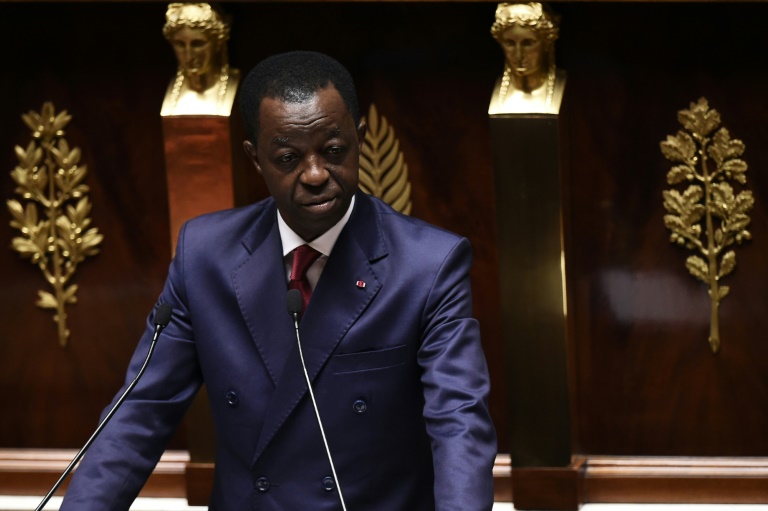Pirates legend blames Riveiro for Champions League exit
Since its creation in 2004, the Pan-African Parliament (PAP) has struggled to make its voice heard, prompting its deputies to ask themselves at a recent gathering: “What are we for?”
“Every time we’re here, we obsess over the same things. If we are not making laws, then what’s the point of being here?” Corneille Padonou of Benin said to his fellow parliamentarians.
“This forum is not a parliament, it is just a discussion platform that does not have any legislative powers. This institution is still wobbly,” said Floyd Shivambu, a parliamentarian from South Africa.
“As it is, it is a waste of resources.”
The PAP, which is headquartered in South Africa, currently has 229 parliamentarians from 51 countries appointed from among those nation’s own parliaments.
On paper, the assembly is the legislative branch of the African Union (AU). But in reality it merely has consultative powers.
“Its role is essentially limited to making recommendations,” said the parliament’s Chadian deputy secretary general Gali Massa Harou.
The Malabo Protocol issued in 2014 was intended to be a game changer, giving the PAP sweeping legislative powers — but the document was never adopted after receiving formal support from just five countries of the required 28.
– ‘What women want, God wants’ –
“We really don’t understand — everyone here is happy for this (agreement) to be ratified” but nothing is happening, said Algerian delegate Mohamed Tayeb Laskri during the PAP’s most recent sitting in October.
“At this rate, it’s going to take us 20 years to sign the agreement,” warned Laskri’s Tanzanian colleague David Silinde to applause from his fellow parliamentarians.
Without any real power, the PAP has effectively become a smoking room for friends, according to Egyptian member Moustafa El Gindy.
The headquarters are in Midrand, an industrial town half way between Pretoria and Johannesburg, temporarily located beside a convention centre.
Even sat navs struggle to find it.
With an annual budget of $22 million (18.6 million euros), the PAP meets twice a year for sessions that require 60 interpreters.
Parliamentarians’ home countries cover the costs of flights, accommodation and food.
On the issue of getting the parliament’s law-making powers rubber stamped, one representative from Mali came up with a novel idea during the October session.
“If we had female deputies going to each of the countries, then we’d come back with agreements,” said a visibly pumped-up Mamedi Sidibe. “What women want, God wants.”

President of the Pan African Parliament Cameroonian Roger Nkodo Dang delivering a speechin France in 2015
Wearing a black and gold robe, the parliament speaker, Cameroon’s Roger Nkodo Dang, made an impassioned plea to the assembled delegates. “Don’t blame anyone like this. I don’t think women would have different results.”
“It’s down to you, Mr Speaker, to take action to find a solution,” retorted another member.
That prompted a tart reply from the speaker who suggested “that it would be nice if you went to (lobby) in your own country”.
But the parliament faces an uphill struggle to secure the greater recognition and powers it craves.
– No reason to be afraid –
“(Countries) are fearful of losing their sovereignty and suffering interference from overseas,” said Egyptian parliament member Moustafa El Gindy, adding that the AU is three-quarters funded by international donors, including the European Union.
But the parliament’s speaker insists that the AU member states have no reason to be afraid.
“There are a lot of policies that the PAP can legislate on (like terrorism and climate change) without infringing on the areas reserved for the states themselves,” he told AFP.
But without the power to take concrete action, the parliament is doomed to continue as a talking shop.
One parliamentarian called for an end to economic migration, another praised the recent move by the United States to lift sanctions on Sudan, while the speaker accused the International Criminal Court for only prosecuting blacks.
As a result of its toothlessness, the parliament has suffered from a lack of recognition and struggled to raise awareness, both among the people of Africa and further afield.
Member countries even refuse to recognise the Pan-African passports issued to the parliamentarians — a major gripe on the floor of the chamber.
Nkodo Dang, the speaker, is also highly critical of the AU leadership in Addis Ababa itself, saying only one AU commission chief, Jean Ping, “took the time to speak to the parliament”.
Download our app